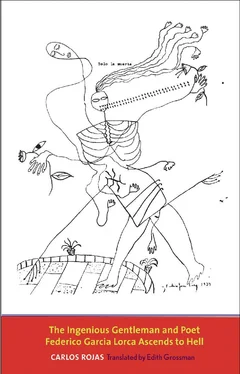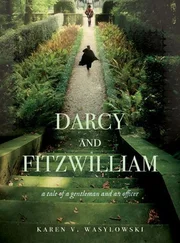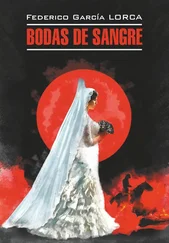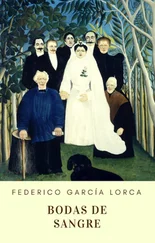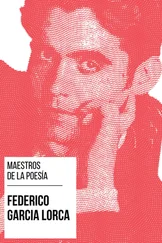“Who are you now?” he interrupted, not listening to him, and in a tone that surprised him again because it indicated a horror and perplexity much greater than what he felt.
“I know who I am,” he replied, quoting Cervantes and still smiling, as if he had pronounced a sacrilege. “In other words, the man you could have been.”
“I know who I am too! Why do you persecute me this way?”
“I’m not persecuting you. You said that I’m at your mercy and it would be enough for you to touch my shoulder with your hand for me to disappear immediately. Why don’t you try it?”
The old man’s skull was growing a white pelt like that of a Moorish shepherd very advanced in years, while his rimless eyeglasses disappeared. And the tone of his complexion, so pale on his cheeks beneath that pink baldness, darkened and blurred the spots on his temples, as if he had spent a long time exposed to many suns. Only the hobgoblin’s clothes and shoes, the attire of someone in mourning for himself, remained unchanged.
“I’d like to know what you want of me … ”
He abandoned the lament in his plea, though he noticed he had put himself at the mercy of the ghost, clearly similar to the man he would be now if his killers had been pleased to let him live. (“I’d like to know what you want of me.”) He thought of the days of La Barraca , when he traveled all over Spain in trucks with a troupe of young men and women who idolized him as if he were a god dressed as a mechanic. In Burgo de Osma they had been joined by an adolescent, still in school and now on vacation, whose parents allowed him to go away with the actors because even in Burgo he was a public figure. (“You’re still young but very justly celebrated. You have a natural talent no one can deny without offending you”), a kind of grown prodigious boy in the eyes of the entire country. “What do you know how to do?” he asked the boy, constrained by his slim bearing and those deep black eyes where two points of gold (WHY DON’T YOU PRETEND YOU’RE CRAZY AND BE ACQUITTED?) flashed in two embers: like the fawn devoured in Aleixandre’s Destruction or Love , quivering in the eyes of a Bengal tiger, transformed into a tiny fleece. In a voice with very good timbre for his age, the boy recited for him lines from the Archpriest of Hita’s The Book of Good Love. “Oh, Lord, and how lovely is Doña Endrina in the square! / What a figure, what charm, what a long neck like a heron’s! / What hair, and what a sweet mouth, what color, and what good luck! / With arrows of love she wounds all that her eyes look upon.” Then he welcomed him to La Barraca , though in reality he wouldn’t have wanted to ask him. Afterward, while he lived with the company, he tried in vain to forget him. One night he was surprised to find himself strolling with the adolescent along very old streets in Soria, with greyhounds and fishes in the carvings of the houses silvered by the moon. They stopped at a fountain to drink, and while the boy smiled at him and dried his mouth with the back of his hand, he embraced him and impulsively kissed him on the lips. “What do you want of me?” he had asked in the identical tone of voice, astonished and terrified, that he had directed to the aged shadow of himself. “Nothing, nothing, forgive me. I only wanted to forget who I am and why I was born the way I was born, but it was useless.”
“I don’t want anything from you,” the ghost said, returning him to the reality of hell. “How could I if I’m only your sham reflection? Why don’t you forget about us and look at the stage in this theater?”
He obeyed almost knowing what he would see, even if it weren’t the staging of his recollections but the dramatization of his double’s memories or fantasies, this phantom of his in a new metamorphosis. The stage opened again onto the station platform and the Andalucía express. He and Rafael Martínez Nadal were returning to the compartment with seats upholstered in large dahlias and Rafael was lifting the suitcase onto the rack, above the yellowing photographs of the Rhine in Basel and the Loire in Amboise. Then he put a hand on his friend’s back, and with a look that seemed more helpless than affectionate, accompanied him to the platform to say goodbye from the step.
“What do you think will happen now?” his double asked in a voice low enough not to annoy other spectators, without names or visible shapes, who perhaps were sitting around them throughout the theater.
“Nothing that hasn’t happened and I haven’t seen before, on this very stage,” he replied, irritated and impatient.
“Are you sure? In your place I wouldn’t insist on it. I’ve already said we’re nothing but the whim of chance or many intertwined chances.”
On the train platform and as he talked to Martínez Nadal, he unwittingly turned toward the open door to the passageway. There, in the corridor, absorbed in contemplating the platform, he saw Ruiz Alonso, the tamed worker. Yet at the precise moment he should have been surprised at the similarity his jaws established between that man and his own father, the scene froze on stage and the three of them, he, Ruiz Alonso, and Martínez Nadal were immobilized in a station as still and quiet as Aunt Luisa’s Sacred Heart in its high lantern above the Rosales family’s chest of drawers.
“What’s going on?” he asked the apparition that was at once his parody and the double of the man he might have been. “Why did everything in the scene stop?”
“Shhhh!” The old man brought his index finger to his lips. “Don’t raise your voice. If this is hell you might wake the innocent dead. Those you claim sleep free of memory.” Then, almost shouting, he threw the question back at him. “What do you think will happen now?”
“The same thing that happened then. The past isn’t foretold because it’s irrevocable. I’m going to ask Rafael to leave, and I’ll hide in my compartment so that man doesn’t see me.”
He was going to observe that Ruiz Alonso had seen him in any event, though he didn’t find that out until after he was dead and living in hell. (“If I insisted on carrying out my duty alone, it was to show him that I didn’t hide behind the curtains at the moment of truth.”) He felt tempted to add that as soon as he returned to the compartment, life again frozen in a tableau vivant , and prepared to close the curtains on the window after closing the ones to the passageway, letters of cast gold would blaze on the glass. PREPARE FOR YOUR TRIAL. He immediately restrained himself because the old man’s mordant smile, resembling that of his first incarnation, gave him a sense of foreboding about the uselessness of such details.
“I think you’re wrong again and everything happened very differently. Or else the past is revocable after all, though you say otherwise.”
“Rafael,” he said to Martínez Nadal when the petrified memory was reanimated, “I changed my mind and I’m staying in Madrid. Please go to the compartment and get the suitcase. Don’t ask me anything else now.” “But you’re deranged!” “I beg you, Rafael. I can’t, I don’t want to go to Granada with that man: the heavyset one leaning out the window in the passageway.” “You’ve lost your mind! Before you know it you’ll bay at the moon like a rabid dog!” “Whatever you say, but do as I ask. Or leave the damn suitcase on the train. I’m getting out of here and I’ll wait for you in the station café.” “All right, all right. Whatever you say,” Martínez Nadal agreed in this unexpected variation on his destiny. Afterward, as if what happened in the theater melted into sudden darkness only to dawn again in a different scene after a transition too fleeting even for the eyes of the dead, he and Martínez Nadal appeared together in the restaurant. A waiter in a stained swallow-tailed jacket was serving them another two cognacs, while the man with the head of a sheep, still worried about and exasperated with him, seemed to be taking care of the suitcase. Again he paid for their drinks and the tip, as he had done in Puerta de Hierro. He drank and continued to face his friend, who silently seemed to be demanding a full exegesis of his lunacies.
Читать дальше
